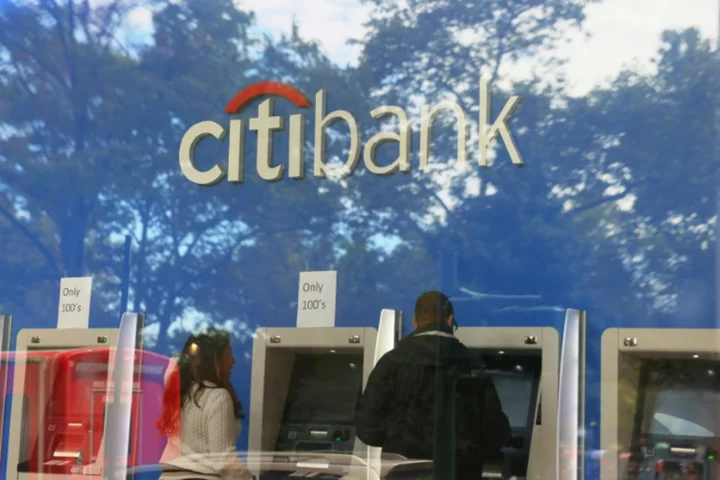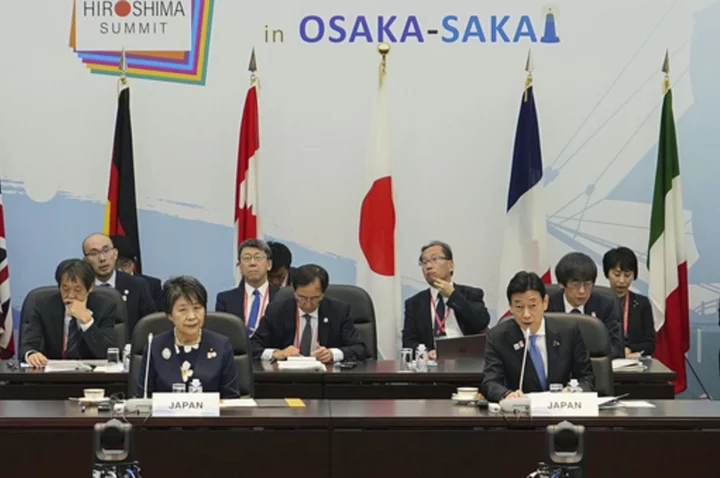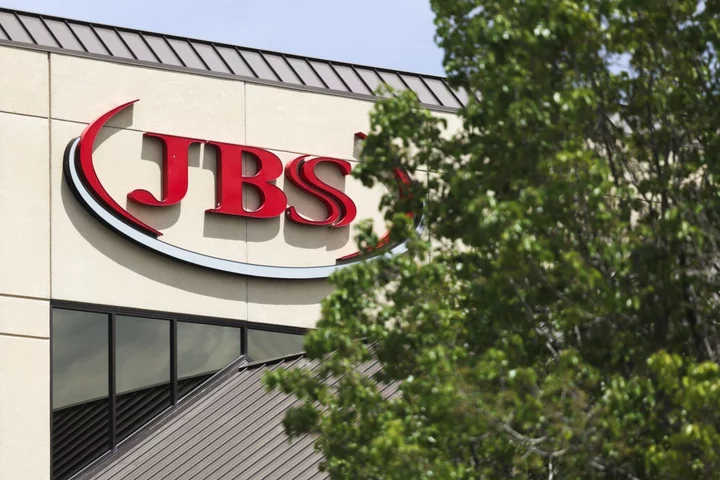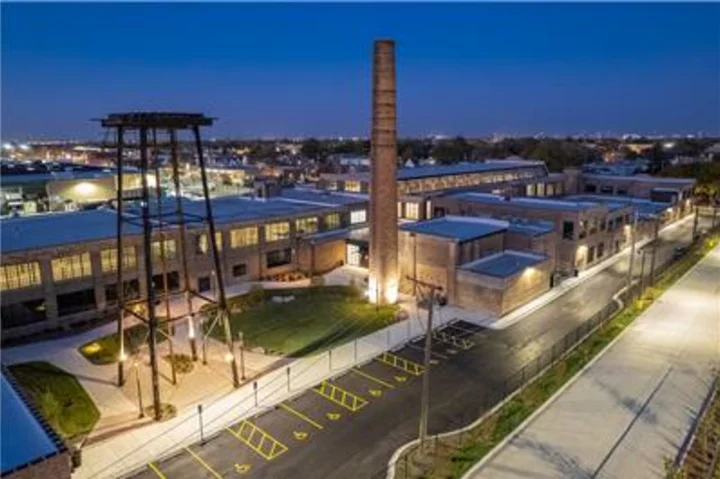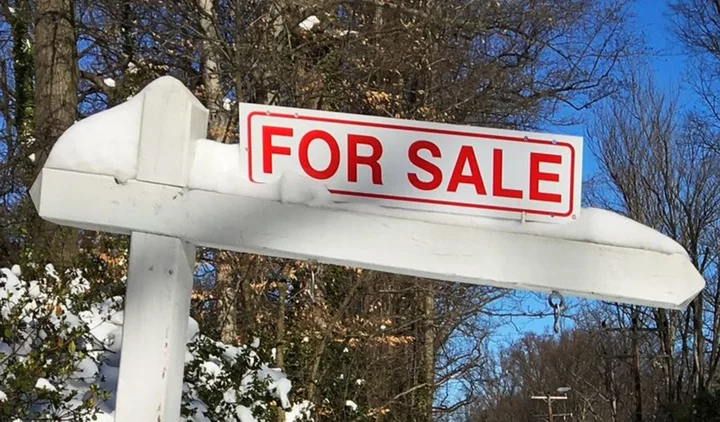Wall Street is preparing for Argentina’s presidential election to come down to a November run-off after libertarian outsider Javier Milei won surprisingly strong support in a primary vote.
The nation’s already-distressed foreign bonds plunged Monday after Milei, who is running on a platform of dollarizing the economy and “burning down” the central bank, captured about a third of votes cast in the primary election on Sunday.
To cope with the pressure, the government — which has long been chipping away at reserves to defend the currency in a bid to stem inflation — caved in, devaluing the official foreign exchange rate by 18%. It also lifted interest rates by 21 percentage points, to 118%.
Argentina’s debt due in 2046 tumbled as much as 4 cents to 28 cents on the dollar. Stocks fared better, with a US-listed ETF rebounding after sinking the most since 2020 earlier in the session.
Here’s what investors and analysts are saying about the outcome of the vote:
Alejo Czerwonko and Pedro Quintanilla-Dieck, UBS
- The nation’s sovereign bonds present an attractive opportunity because valuations are depressed, they’re correlated to commodity prices and there’s potential for a regime change despite Milei’s unexpected PASO win
- “All in, the odds the that the current ruling party will remain in power seems very low, and the most likely outcome of upcoming elections appears to be a shift of the balance of power towards the right”
Dirk Willer and Ernesto Revilla, Citigroup
- “The election trade predicated on the ‘change’ of the political landscape remains in play: Massa will likely try to avoid a full-fledged crisis until the first round of presidential election in October, and in the case of a Milei win, we think he could soften his stances and try to gather some consensus among other political forces”
- Market consensus was that a peso devaluation would follow after October’s election, with the expectation being about a 50% devaluation, they wrote
- “At this stage, it is not certain whether authorities are able to keep the FX at the new level, but with IMF money it stands as a possibility”
Gerónimo Mansutti Silva and Matías Bensousan, EMFI Group
- “The worst case scenario of a Massa victory continues to look unlikely, the moderate center-right opposition would still be favored in a second round”
- “We don’t share the market’s anxiety about Milei, who would have to moderate his positions to push his policies forward in congress, where his party would not have a significant presence given that only a third of the senate and about half of congress are up for grabs this year
- “Thus, given the encouraging short-term outlook and the even lower prices, we reaffirm our high conviction buy recommendation”
Alberto Rojas, Credit Suisse
- “The victory of Javier Milei in the PASO elections is a signal from Argentine voters of their interest in something completely different for their next leader”
- In the case of a runoff between Milei and Massa, Rojas expects Milei to be the favorite, likely attracting voters of Horacio Rodriguez Larreta and Patricia Bullrich
Pilar Tavella, Barclays
- “The surprising win of Javier Milei in primary elections has increased political uncertainty instead of reducing it”
- “The economic crisis is set to deepen and it is unclear how voters will react to more instability”
- “Participation was particularly low, at 70%, and it is unclear how a likely increase in participation would affect each party”
Edwin Gutierrez, abrdn
- “This vote is likely to go to a second round, but the key will be how much turnout increases”
- “There probably won’t be a lot of voter transference to other candidates”
Oren Barack, Alliance Global Partners
- “A completely fed-up population is willing to try a completely new entity, with more extreme views, to change both parties’ decades of failures”
- “We are likely to see bond prices stabilize”
- “Milei is just the unknown and biggest surprise to the market, but if he ultimately wins in the general election, a significant reduction in government spending and dollarization of Argentina could actually be a benefit in the long term”
Benito Berber, Natixis
- “People are fed up with the Peronists, and that is positive for markets. However, we are not sure if the market will react positively to a potential President Javier Milei”
- “The libertarian candidate has extreme positions like dollarizing the economy and he is unlikely to have strong support in congress to pass the necessary reforms”
Graham Stock, Bluebay Asset Management
- “The October election is wide open, as the three main candidates effectively have a third each of the vote”
Juan Pablo Rotger, Banco Mariva
- “Milei’s win came in a landslide as he managed to win in 16 of the 24 electoral districts, most notably in Cordoba, Santa Fe and Mendoza”
- Low voter turnout “adds an extra layer of uncertainty going toward the general election”
Mariano Machado, Verisk Maplecroft
- “Milei’s lack of executive experience increases the risk of a disorderly economic adjustment, including a possible major social crisis post-December”
- “In this context, market reaction on Aug. 14 could be crucial toward determining whether the next administration will face an even worse economic crisis than the current one”
- “In a country with a 40% poverty rate, a major increase in unemployment and/or informality would increase the fire under the existing pressure cooker. Social upheaval could reach levels similar to those of the early 2000s, which set new political, security and social risk records for investors”
Ana Iparraguirre, consulting firm GBAO
- “We are going from a bi-coalitional, highly polarized system to a more fragmented situation, more similar to what we are seeing in the rest of Latin America, with three forces fighting for power. But it’s a totally open election”
--With assistance from Giovanna Bellotti Azevedo, Zijia Song and Maria Elena Vizcaino.
(Updates market moves starting in third paragraph; adds comments from UBS, EMFI Group, Citigroup and Credit Suisse)



